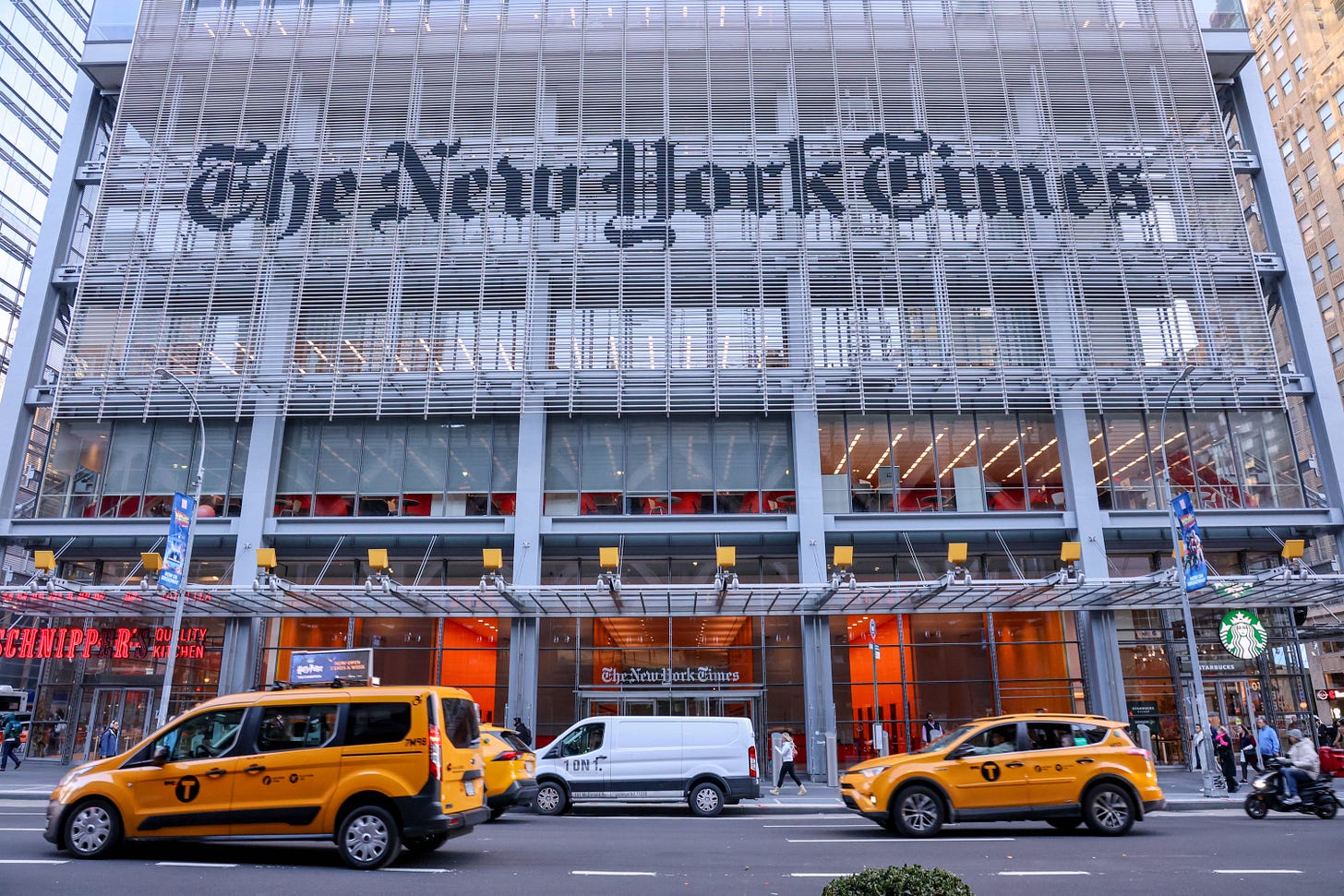As a Veteran Reporter, I've Always Valued Neutrality. But Trump's Threat To Democracy Should be the Biggest Political Story of 2024
What the New York Times is getting wrong in its coverage of Trump vs. Biden.

For as long as I've been a reporter, maintaining neutrality while covering politicians has been journalists' mandate. But 2024 presents a different issue: Should reporters also be neutral about the fate of American democracy?
That question lies behind the tension between the Biden White House and the New York Times that recently burst into public view. And it challenges the relevance of conventional journalistic objectivity to the choice voters face in six months.
Some aspects of the White House-NYT contretemps reflect their traditional adversary roles. President Joe Biden's aides object to the tone and emphasis in Times coverage; Times editors bristle at the critique, and at Biden’s refusal to grant the world’s leading newspaper an interview.
Each party holds a weakened hand. In today’s fractured information landscape, “leading newspaper” doesn’t signify what it used to. For the same reason, contemporary White Houses struggle to shape public perceptions through the diffuse firehose of news websites, cable television networks, and social media platforms.
The White House and the Times agree on one simple point: Reporters should not “take sides” between incumbent and challenger. But defining the practical contours of that stance in a contest between the current president and his predecessor is a more complicated line-drawing exercise.
Donald Trump is the first American presidential candidate to explicitly threaten the democratic system on which a free press depends. He could win. Considering the stakes for the country, that ought to be the campaign issue that dwarfs all others.
Times executive editor Joseph Kahn doesn’t think so. Citing opinion polls, he told Semafor recently that voters care less about preserving democracy than immigration, inflation, and the economy. Rather than becoming a “propaganda arm” of the Biden campaign, Kahn shapes coverage by voters' concerns.
His argument presents a couple of problems.
First, allocating journalistic resources by polling cedes the judgment of editors to political actors who work overtime to shape public opinion. That’s particularly problematic as authoritarian foreign powers such as Russia, amplified by some members of the Republican Party, relentlessly inject propaganda into our public debates.
Second, the imperative not to aid the pro-democracy side becomes a little precious when the alternative poses a clear and present danger to the constitutional order. Journalists are not indifferent to the survival of the American system.
Neutrality between political actors has been a cardinal journalistic principle since 20th-century news organizations adopted a professional ethic of objectivity. The power of that principle explains why so many journalistic accounts frame Biden and Trump in parallel as two sides of the conventional political coin.
So, instead of analyzing the two men’s demonstrated capacities to handle the presidency, for example, stories observe that Trump holds an edge because voters consider Biden too old. Instead of qualitative assessments of their economic policies, stories revolve around Americans’ stated unhappiness with the incumbent’s record.
But poll-driven “balance” represents a dubious safe harbor when the central issue is preserving or abandoning free and fair elections, popular sovereignty and the rule of law. Consequences that momentous demand sustained, sober exploration.
There’s no doubt that Trump, not Biden, places those core American values in jeopardy. The Jan. 6, 2021, insurrection wrote Trump’s intentions in blood. He promises more depredations in a second term.
Trump’s authoritarian platform calls for turning the federal bureaucracy into his personal instrument. He vows to make the Justice Department a weapon of “retribution” against his enemies, and raises the specter of violence “if we don’t win.”
The Times and other publications have covered those plans extensively. The stories make clear the authors disapprove of them.
If journalists favor democracy over autocracy - and they do - that’s only natural. How explicitly – and how often – journalists should convey that judgment poses harder questions.
The Times says it can favor the cause of democracy without favoring Biden. That line of demarcation appeals to all conventional journalists, including me. But in a binary-choice election, it may be a distinction without a difference.
Richard Haass, a former foreign policy aide in Republican administration and head of the Council on Foreign Relations, describes the stakes with brutal simplicity. To safeguard democracy, Biden “has to win,” he told me early in the campaign.
That stark framing of a free election can itself sound almost anti-democratic. Even Biden, when I interviewed him last fall, acknowledged he’d be uncomfortable making that argument to voters.
“I don’t think if it was phrased that way,” Biden said. He suggested instead: “If the former president were to become president again, the things he says he will do are a threat to American democracy.”
Covering the menace Trump poses in the proportion it deserves might not influence voters’ choices in any case. But it has its own value in affirming another cardinal principle: that journalists center our coverage on what is important and true.
If you are not signed up to receive The Stakes, subscribe now. If you're already a Zeteo subscriber, click your profile icon in the top right corner of the Substack page, go to “manage subscription,” and scroll down to select, ‘The Stakes with John Harwood.’



I fear that too many “journalists” will pick their current paycheck over a future gulag. They are exceptionally shortsighted.
Men like Kahn are blinded by the frame they have ALWAYS ascribed to.
It is truly disheartening to see this nation fall for a guy like Trump.
Both siding a story has been the down fall of journalism in large part.